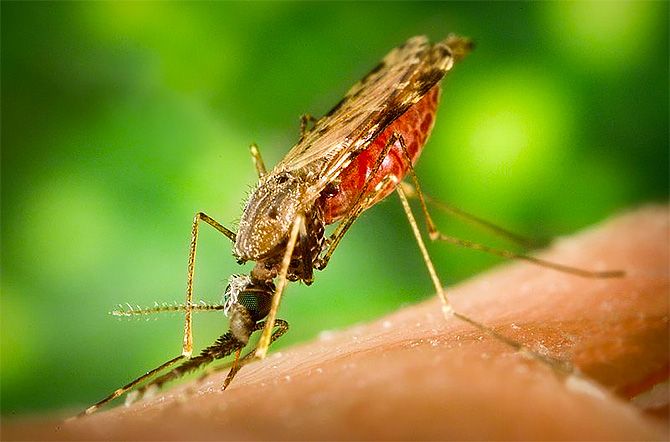Scientists have confirmed for the first time that the novel coronavirus behind the COVID-19 pandemic cannot be transmitted to people by mosquitoes, a finding that adds evidence to World Health Organization's claim that the disease is not mosquito-borne.

The research, published in the journal Scientific Reports, provided the first experimental evidence on the capacity of SARS-CoV-2, the virus that causes COVID-19 disease, to infect and be transmitted by mosquitoes.
"Here we provide the first experimental data to investigate the capacity of SARS-CoV-2 to infect and be transmitted by mosquitoes," the study noted.
"While the World Health Organization has definitively stated that mosquitoes cannot transmit the virus, our study is the first to provide conclusive data supporting the theory," said Stephen Higgs, a co-author of the research from Kansas State University in the US.
According to the study, conducted at the university's Biosecurity Research Institute, the virus is unable to replicate in three common and widely distributed species of mosquitoes -- Aedes aegypti, Aedes albopictus and Culex quinquefasciatus, and hence cannot be transmitted to humans.
Samples collected by the scientists within two hours of inoculation in mosquitoes confirmed efficient delivery of infectious viruses to these insects.
However, based on the lack of detectable infectious virus in any of the 277 samples collected at all time points beyond 24 hours post-inoculation, the scientists said SARS-CoV-2 cannot replicate in mosquitoes.
"Even if a mosquito fed on a person with virus in the blood, the mosquito would not be a vector if feeding on a naive host," they concluded.
"We demonstrate that even under extreme conditions, SARS-CoV-2 virus is unable to replicate in these mosquitoes and therefore cannot be transmitted to people even in the unlikely event that a mosquito fed upon a viremic host," the scientists wrote in the study.










